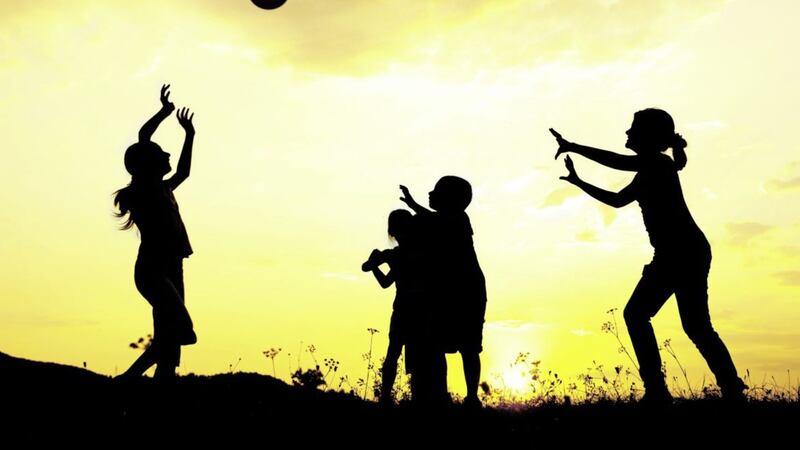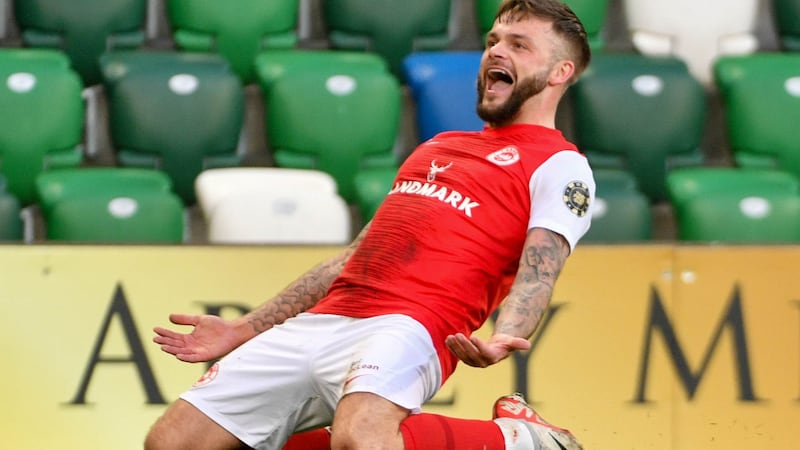IT'S the little things you miss. The early morning stillness. The butterflies and trying to beat the clock. Rosa and me being so quiet, barely talking above a whisper trying not to disturb the tranquil promise of a lie-in for rest of the house.
The curtains are drawn to let the Saturday morning light in.
Rosa's football kit is always laid out over the sofa. Socks. Shorts. Vest. Top. Pink trainers. Shin pads. And lime green hoodie. In the quiet mayhem of the morning I hope that her St Malachy's kit, her pink trainers and hoodie will always fit her.
I pack the car with footballs. Kit for the other girls. Medical bag and sanitiser. It's a short distance to Solitude, so I let Rosa travel up front.
We park in exactly the same spot every week, on the corner of the tree-lined street. Whatever the weather this unstirred neighbourhood always looks and feels idyllic.
Hand on heart, I've never taken our Saturday mornings together for granted. Not one of them.
Neither of us needed a crushing pandemic to make us appreciate what it feels like to touch the sky.
I knew from the start that these days would be all that I'd hoped they'd be. Just like every other parent.
It's always a couple of minutes to nine o'clock. Rushing is part of the gig. Too many kit-bags, footballs and water bottles, and too many thoughts running around a man’s head at this early hour to focus on one of them.
You see, it's the way Rosa moves when she gets out of the car for football, with her water bottle and the hope in her little heart she'll score a goal.
As we make our way to the pitch she doesn’t walk up the street; she skips. She thinks I'm completely preoccupied with one hundred other things - and I am – but I still see her.
Watching everything. How she skips, smiles excitedly and chats away to herself about her match before trying to find her team-mates as soon as we breeze into the ground.
'What pitch are we on, daddy?'
And off she runs. Faster than a hare.
She acts differently with her friends around, where she's unmistakably and forever seven-years-old.
The way it was supposed to be.
Rosa is a little left footer. Her father’s bias aside, she is a talented footballer.
But even if she wasn't as talented, it wouldn't change this Saturday morning love affair we share one iota.
If anything, it would make those small victories on the pitch – a kick, a pass, a shot, a tackle - bigger in our own heads and we'd live off them until Saturday comes around again.
I was like any other underage coach.
I started off as a parent who was asked to lend a helping hand. Before you know it you're wearing a club tracksuit, being put through all kinds of courses, standing in the middle of a 4G pitch, armed with a bag of balls, more cones than you'll ever need, jerseys, bibs, samba nets and a handful of training drills some of which are probably 30-years-old.
It's true what they say: the longer you stay on the side-line, the more invested you become - not just in your own daughter, but every child who is taking their first tentative steps in the game.
To watch their trajectory, to watch them find their own stride is one of life's pleasures.
Every juvenile coach, parent or guardian will testify to this whether it’s soccer, GAA, tennis, badminton, rugby or swimming.
It is everything about these days: a child's perpetual youth, their perpetual innocence and our perpetual happiness.
But then we were hit by an almighty, invisible tsunami called COVID19, the likes of which we never imagined would impact on our lives to such a ruthless extent.
To varying degrees, the last 12 months have eroded all of us in some shape or form. One of the worst impacts has undoubtedly been felt by children.
Even when the conflict raged here, children were far better off than the class of 2020.
No school. No sports. No friends. Nothing.
With varying degrees of enthusiasm, we all tried to hammer down the R rate and keep our hospitals afloat
But, as we emerge tentatively from the latest lockdown, you ask yourself was it worth it?
Did it have to be so harsh?
What price do you put on a stolen childhood?
Where is the compensation scheme for the kids? Where was the space created for them?
It’s only in more recent times, reports and studies are emerging that give grave snapshots of the mental and physical damage done to children and young people over the last year.
We’ve all been far too passive in watching this terrible injustice unfold, particularly those in power, because one of the enduring follies of this pandemic is being in receipt of the indisputable knowledge that outdoor space is infinitely safer than indoors in relation to transmission.
Up to this point you could count on one hand how many political representatives have challenged the unjustifiable caution displayed by the Health Minister Robin Swann and Stormont’s scientific advisers.
When does scientific advice collide with the mental and physical well-being of children? Does it ever?
For far too long, this pandemic has been singularly fought in mathematical terms - and yet the public has never been provided with settings data for outdoor sports activity in a controlled environment.
School and outdoor sports should be joined at the hip in the Covid recovery process - just as they are in many European nations that put a higher value on mental well-being while also having restrictions in place.
And yet, all the while the vaccine – remember that hugely significant game-breaker? – doesn’t figure much in the debate to return children back to outdoor sports.
Consider the following stats from the impressive vaccination roll-out here: As of Wednesday, 95 percent of over-80s; 90 percent of 75-79-year-olds; 84 percent of the 70-74-year-olds; 69 percent of 65-69-year-olds have received their first dose.
In Scotland, hospitalisation has been reduced by over 90 per cent four weeks after the first-dose of the Pfizer and Oxford-AstraZeneca vaccination roll-out.
In other words, Covid cases are no longer translating into hospital admissions.
While some continue to look for the negatives in everything, we are coming into the light.
And when we do, the kids should be front of the queue. You'll see it in the different way they move.
It really is time to give them back some of what they've lost.








